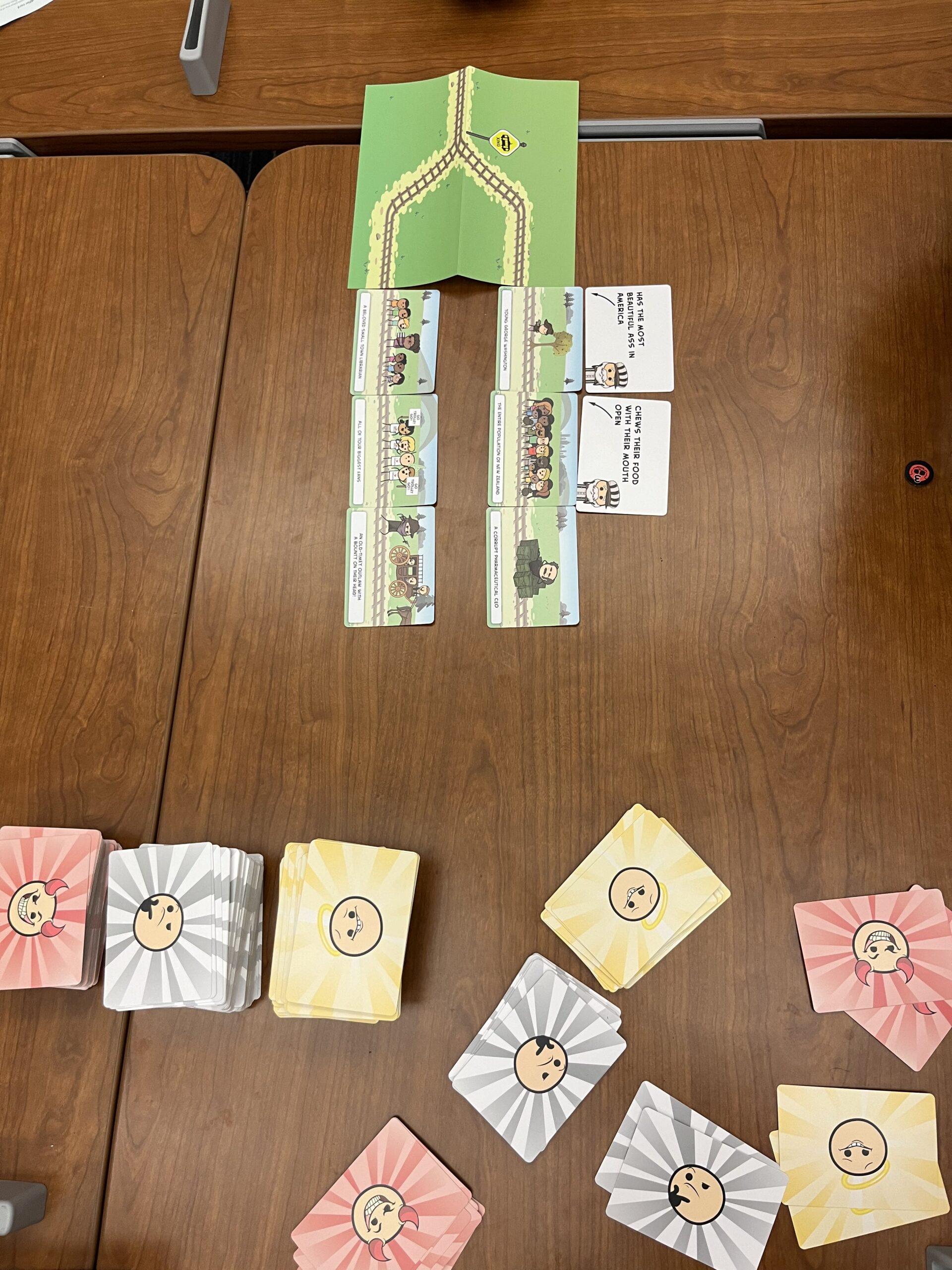Name: Trial by trolley
Target audience: 14+, 3-13 players
Creator of game: Scott Houser
Platform: Physical, cards + playing mat + tokens
The game has three-folded judging. One is within the team members when they are choosing which card to be placed on the tracks, second is when the teams debate and argue as to why their track should be saved and final one is for the judge when they finally give their verdict.
The narrative and the story line was really interesting since its inspired by the trolley problem. The choice of cards is also very interesting – they are up to date with latest happenings around the world.
The little team discussions before choosing a card to be placed on the tracks leads to a sense of fellowship. And the round of debating and convincing the judge also leads to a sense of rivalry giving rise to a different sort of fellowship.
There was an interesting dynamic evolving – players were trying to understand each other’s value system to make the bets appropriately, and also remember their past decisions in order to increase their likelihood of winning a round.
Sometimes the cards were completely one-sided due to which making a choice was very obvious, reducing the fun for that round. I guess the most fun rounds were those where both tracks had good arguments and it was edgy to make a choice.
Similarly, there was restraint on time taken to make a decision. However, having a time constraint would increase the speed of the rounds making it more fun and light-hearted.
Since the game involved making a choice of who dies – the stakes were high in the players’ minds. In fact, when a player found it be beneficial to lose the round in order to save someone on the opponent’s track they loved or cared about, the player was confused which side to take. Revealing the confusion led to more information being disclosed about players leading to greater sense of camaraderie.
Towards the end, it seemed players knew some things about each other which they would not have known otherwise, and there was more-or-less a sense of friendship. However, there were moments when players were unhappy with judge’s decision which might have led to some sort of unfriendliness and animosity. Also, since the game had a proper winning condition and thus, a losing condition, the players who lost did not feel great towards the end of the game. I wonder if the purpose of the game is to make anyone feel bad about losing it.
Since you team up with players who are next to you in every round, you dont get to know everyone in the group as closely as the ones next to you. This reminds me of the idea of serendipity from Daniel’s video on friendship from games. So, some sort of mixing amongst players leading to randomness in team matching would be perhaps useful.



